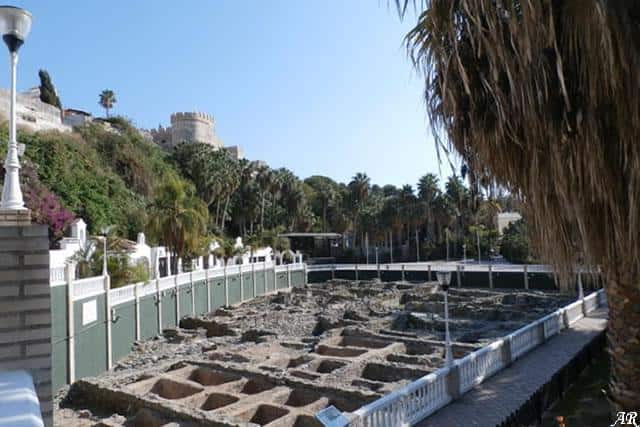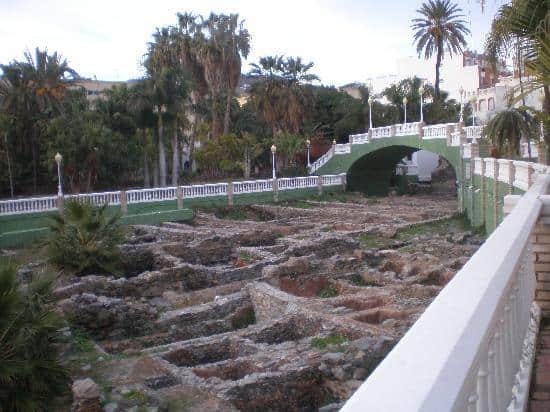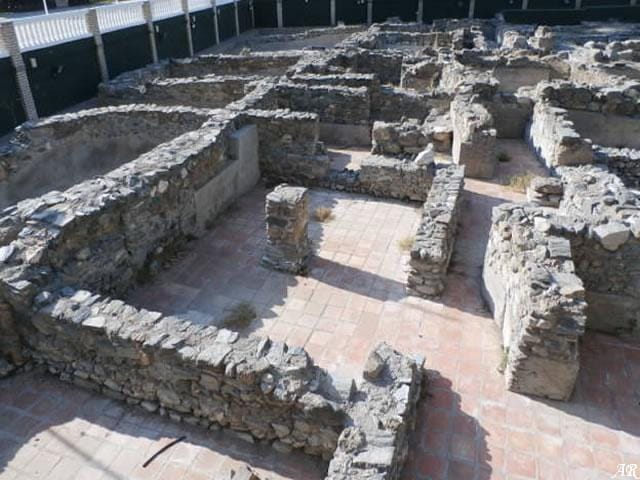- Home
- Business Directory
- Things To See & Do
- Car Hire
- News
- Properties
- Event Guide
ES
El Majuelo fish salting factory
El Majuelo fish salting factory

Almuñécar is home to a wealth of archaeological sites. One of the most notable is the fish salting factory located within El Majuelo Park.
This historical site preserves the remains of a Roman-era facility where fish were processed for preservation. This industry, which dates back to Phoenician times, played a pivotal role in Almuñécar’s economy between the 5th and 4th centuries BCE. The Phoenicians were renowned navigators of their era, coming from Asia Minor. They established several fish salting factories along the Andalusian coast, which were later Romanized and continued operation.
Its remains are found in the El Majuelo Botanical Park. The factory was situated in a sheltered cove near the mouth of the Seco River. It was was strategically placed close to the port yet away from the city to mitigate any unpleasant odors or insect issues.
Evidence of the factory’s operation can be traced back to the 4th century BCE, but its peak productivity occurred in the 1st and 2nd centuries CE. This was due to the immense impact of fish processing and sauce production, particularly the highly sought-after Garum de Sexi, which was widely valued across the Roman Empire. This economic activity also led to the flourishing of related industries like pottery and shipbuilding.
The factory’s layout followed the standard design of its time, featuring central tanks where fish were preserved with salt. The process took several weeks to months. Surrounding areas were dedicated to cleaning, preparation, and storage, while administrative functions were carried out in the southern section. Fresh water was supplied through an aqueduct, with storage cisterns on hand.
The heart of the factory was the production area, where fish fillets were layered with salt in the tanks. These tanks were designed at ground level for easy filling, with rounded edges to prevent any structural damage and lined with a waterproofing material called opus signinum. The entire factory was covered with wooden roofs to shield the production process from the elements. The extensive and intricate nature of the El Majuelo fish salting factory highlights its central role in Almuñécar’s economy.
However, by the 4th century CE, the factory’s importance began to wane, leading to its eventual repurposing as a sacred burial site.
Though a portion of the site is now buried beneath the El Majuelo Botanical-Archaeological Park, visitors can still explore a substantial section of the salting tanks and structures excavated in the 1970s and 1980s.


Opening time: It is open every day from 9:00 am to midnight in June, July, and August; from 9:00 am to 9:30 pm in November, December, January, and February; and from 9:00 am to 11:00 pm in March, April, May, September, and October.
Free admission
Location: Calle Nueva, 8, Almuñécar
Tel: 958631125
Alhambra Guided Tours
A visit to Granada wouldn't be complete without seeing the Alhambra. Click the button to check out our suggested guided tours.
